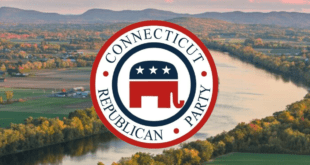Title: The Imbalance in College Sports Revenue and Its Impact on Student-Athletes
Introduction:
Public universities generate massive revenues from their athletic departments, attracting the attention of private equity investors. While this partnership has the potential to bring in additional funds, the situation raises concerns about the compensation of student-athletes. Despite recent legal developments allowing athletes to market themselves, the majority of them remain unpaid or underpaid. The continuous investment of athletic departments in coaching salaries and facilities exacerbates this imbalance. It is crucial to prioritize the long-term needs of student-athletes in order to provide them with fair compensation, as they are the backbone of college sports.
The Financial Landscape of College Athletics:
In 2019, Division I athletics generated $15.8 billion in revenue, with a significant portion coming from football and men’s college basketball. Media rights, ticket sales, royalties, and licensing contribute heavily to this income. Athletic departments receive substantial annual payments from these revenue streams, benefitting from media rights deals. However, the recent shifts in media rights agreements, such as the Pac-12 Conference’s declining value, highlight the volatility of this aspect of college athletics.
Media Rights and Institutional Strategies:
Media rights typically form a crucial part of top-tier athletic departments’ budgets. However, only 25 out of 130 schools in the Football Bowl Subdivision operate with a positive revenue balance. Consequently, colleges and conferences are actively seeking additional sources of funding. Initiatives such as enlisting investment banks, like the Pac-12 did with the Raine Group, aim to secure upfront financing in exchange for equity and a share in media rights deals. While these initiatives have not yet materialized, the growing demand for live sports content continues to increase the value of college athletics.
Inequity in Compensation:
The potential infusion of funds from private equity investors may not benefit student-athletes directly. In 2019, only 7% of the revenue from college football and basketball translated into academic scholarships and living stipends for the athletes. By contrast, administrative support and coaching compensation accounted for 35% of Division I revenue during the same period. This disparity underscores the need for a more equitable distribution of funds between coaches and athletes.
Impact of Recent Legal Developments:
Recent court rulings and legislation on name, image, and likeness (NIL) rights have had limited impact on addressing this imbalance. The majority of student-athletes still receive no financial benefits from their NIL rights, while those who do remain independent contractors with no relationship to their athletic department’s earnings. This dynamic benefits the colleges and athletic departments, as they can use NIL rights as a justification for not sharing their growing revenue streams.
The Role of Private Equity Investors:
Private equity investors can play a crucial role in driving discussions around fair compensation for student-athletes. As college sports media deals increase in size, athletes at top-tier football schools are increasingly resembling professionals,, resulting in less time for education. While this shift may benefit a small number of players, it undermines the interests of most student-athletes and the college sports brand that relies on the amateurism of its athletes. Private equity investors, invested in preserving this brand, should advocate for changes such as five-year athletic scholarships and stricter limits on weekly time demands for athletes to prioritize their studies.
Conclusion:
The current financial landscape of college athletics highlights the need for greater equity in compensating student-athletes. Public universities’ athletic departments generate substantial revenue, attracting private equity investors. However, without prioritizing the long-term needs of student-athletes, these investments may exacerbate the existing imbalance. Reforms such as longer athletic scholarships and reduced time demands can create a more equitable system that benefits both athletes and the sustainability of college sports. Private equity investors should consider these reforms as worthy investments that align with their interests in preserving the college sports brand.
 Mind Uncharted Explore. Discover. Learn.
Mind Uncharted Explore. Discover. Learn.




